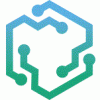Data Mining for slow/stop/reverse aging
 alc
17 Feb 2015
alc
17 Feb 2015
I would like to ask if people are interested in joining forces and work on data mining for slow/stop/reverse aging.
In the great scheme of things this will evolve from an existing package (like Orange listed below) that mine for meaningful information, link that data
extract meaningful information and make logical projections.
... then in time will evolve into AI ...
I played a bit with Orange which is an Open Source package developed by University of Ljubljana in Slovenia, EU.
The software is scriptable via Python and it is Open Source.
This is just a starting idea.
Whoever is interested, please make comments and suggestions.
thanks.
 niner
17 Feb 2015
niner
17 Feb 2015
What data would you mine? The scientific literature? That's a hard problem, imho.
 alc
17 Feb 2015
alc
17 Feb 2015
@ niner - yes, I'm referring to scientific literature/information.
here is my take on it.
1. is it possible to be done: YES
2. is it easy to be done: NO
3. should be start developing this: YES
I would say, sooner, the better.
it will be a long run, no doubt, but with a talented team, we can achieve a lot.
we can try to engage universities around the world to participate in the development of such tool.
it can be similar to SETI@home, just that we will accelerate the development of slow/stop/reverse aging process.
the results can be feedback live on your mobile device.
I have the feeling that once word gets out, there will be a lot of people interested around the world.
 Antonio2014
17 Feb 2015
Antonio2014
17 Feb 2015
Well, what I think is need to make this possible is not volunteer crunchers but advances in AI research. I mean, computing power is necessary, but the real showstopper is the creation of the searching algorithm. How will you solve that?
 alc
18 Feb 2015
alc
18 Feb 2015
@Antonio2014 -
yes, that is part of the WORK we have to do.
Creating algorithms to extract, manipulate, interpret and do projections is going to be a big hurdle, but not impossible.
I'm looking for people willing to set the foundation of such project.
We can post on sourceforge.net and ask others to join.
There are already several Open Source packages that can complement this tool.
For example:
Clotho
JCell Framework
Proto
etc.
We just need to create a group of serious interested people and start working.
 cloudcell
18 Feb 2015
cloudcell
18 Feb 2015
At this point, I can only contribute a long list of data mining ( and related ) software (both open source and commercial ): https://codingbeacon...ag/data-mining/. I hope it can useful.
 Sanhar
19 Feb 2015
Sanhar
19 Feb 2015
Exactly what would people need to do in order to advance this project? You say you need help so explain what is needed please. It *seems* to me that you need number crunching computer coding people for this, but please be clear and expand on that as is appropriate.
 niner
19 Feb 2015
niner
19 Feb 2015
For starters, you need natural language interpretation, tuned to handle scientific jargon. IBM is using Watson for a project like this. You're also going to need knowledge representations for molecular biology, anatomy, physiology, etc. TBH I don't think anyone here has any idea how complex a problem this is.
Edited by niner, 19 February 2015 - 02:29 AM.
 MTS
24 Feb 2015
MTS
24 Feb 2015
I recently worked on a bi-project where we used IBM Modeler to analyze social media and news sites. I'm not saying that it's not possible, but I honestly don't think that it's something you can do in your free time.
 Jose_LER
10 Apr 2015
Jose_LER
10 Apr 2015
That is the thing that Google wants to do using all the scanned books.
They want to feed an Artificial Intelligence engine using data mining, computational linguistics, etc... to be able to extract knowledge from a huge amount of books.
Then, maybe you can speak with the machine and the machine will answer using the voice as a human being. The difference is that the machine is much more clever because it has thousands of books in his memory and the machine also understands the information that the books contain.
Is it possible to make it?
Yes, of course.
Is very hard to accomplish it?
Yes, of course.


